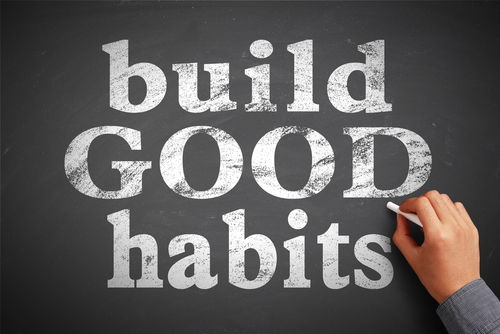Tracking Lets You Monitor Your Habits

Despite the many diet plans out there, ultimately it boils down to the calories you consume versus the calories you burn through activity. However, small changes like replacing empty calories can make a big impact when it comes to losing weight. Your body needs a balance of nutrients to stay healthy and energized. Instead of focusing on calories, aim for a varied diet. Additionally, calorie counting can sometimes lead to avoiding nutritious foods because of their calorie content.
Eating nutrient-dense foods boosts your metabolism and turns your body into a fat-burning machine. Protein, fiber, and healthy fats are essential for a healthy life. By providing your body with these nutrients, you can achieve weight management. Don’t forget to focus on portion control and prioritize foods from all food groups, and you can achieve and maintain a healthy weight while nourishing your body. Living hungry is simply not a sustainable approach.
How to Improve Your Accountability
While a scale may be the most accessible tool, it only shows your overall weight and not the composition of that weight. Tracking food and exercise lets you make more informed decisions. Benefits of tracking food and exercise habits include:
1) Increased self-awareness – Research suggests that people who weigh themselves every day have more success with improved self-awareness compared to those who weigh in weekly.
2) Monitor your habits – Research has shown that people who monitor their habits for losing weight were all more likely to improve their overall health than those who didn’t.
3) Improve accountability – Improve accountability by keeping track of how you are progressing on your journey towards healthy living. Progress keeps you motivated when pursuing your goals.
4) Reflect on changes needed – Journaling can be especially useful for those who struggle with weight management. Reflecting on changes that are routinely can be a key to achieving long-term success.
Making Timely Adjustments Makes a Difference
If you're not losing weight despite a calorie deficit, consider other factors like stress, diet, sleep, exercise patterns, hormonal changes, aging, and other health conditions. Making adjustments in these areas makes a difference in weight loss. It's recommended that adults try to be active every day and aim for at least 150 minutes of moderate aerobic exercise. This can include activities like cycling, walking, or housework. You can slowly add strength training to retain muscle mass.
While nutrition is the primary focus of initial weight loss efforts, exercise shouldn't be overlooked. Staying active provides benefits like improved mood, better sleep, and increased energy levels for more sustainable long-term results. Calories are not the only factor for improving wellness. Your body also needs vitamins, minerals, and antioxidants. Don't solely focus on calories as aerobic and strength training has numerous benefits when combined with healthy eating.
By submitting this form, you agree to receive marketing text messages from us at the number provided, including messages sent by autodialer. Consent is not a condition of any purchase. Message and data rates may apply. Message frequency varies. Reply HELP for help or STOP to cancel. View our Privacy Policy and Terms of Service.

